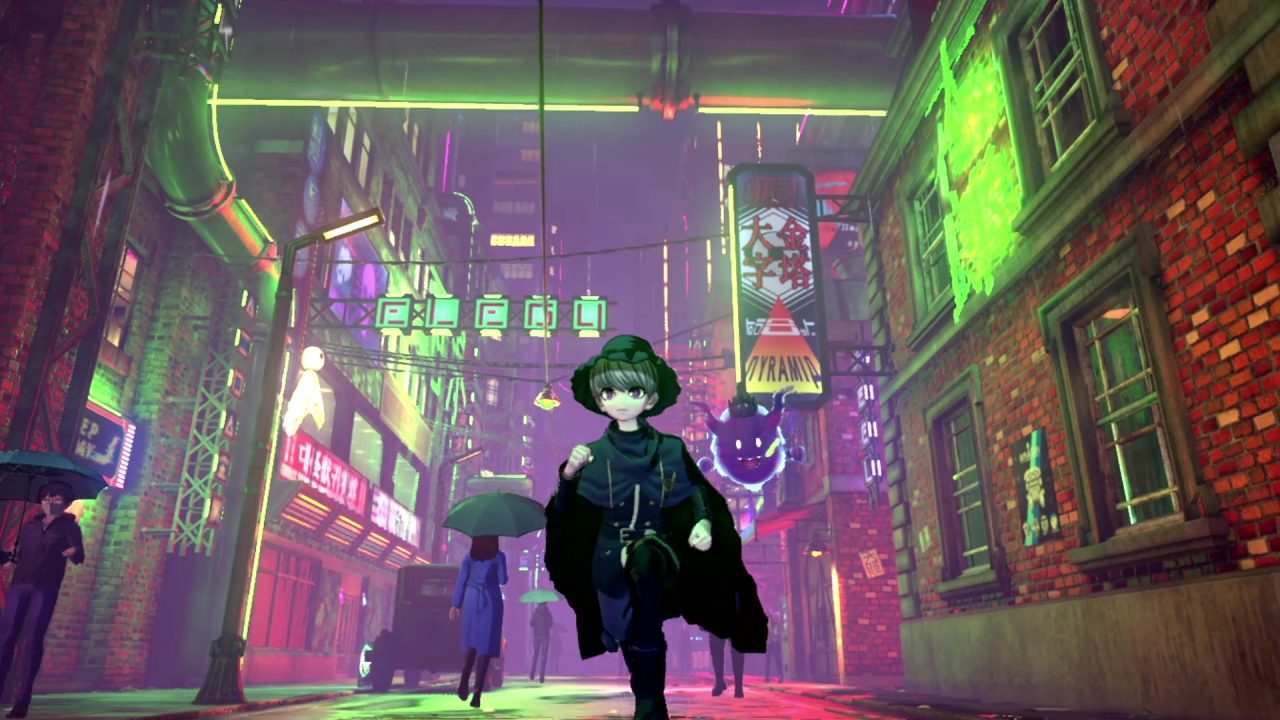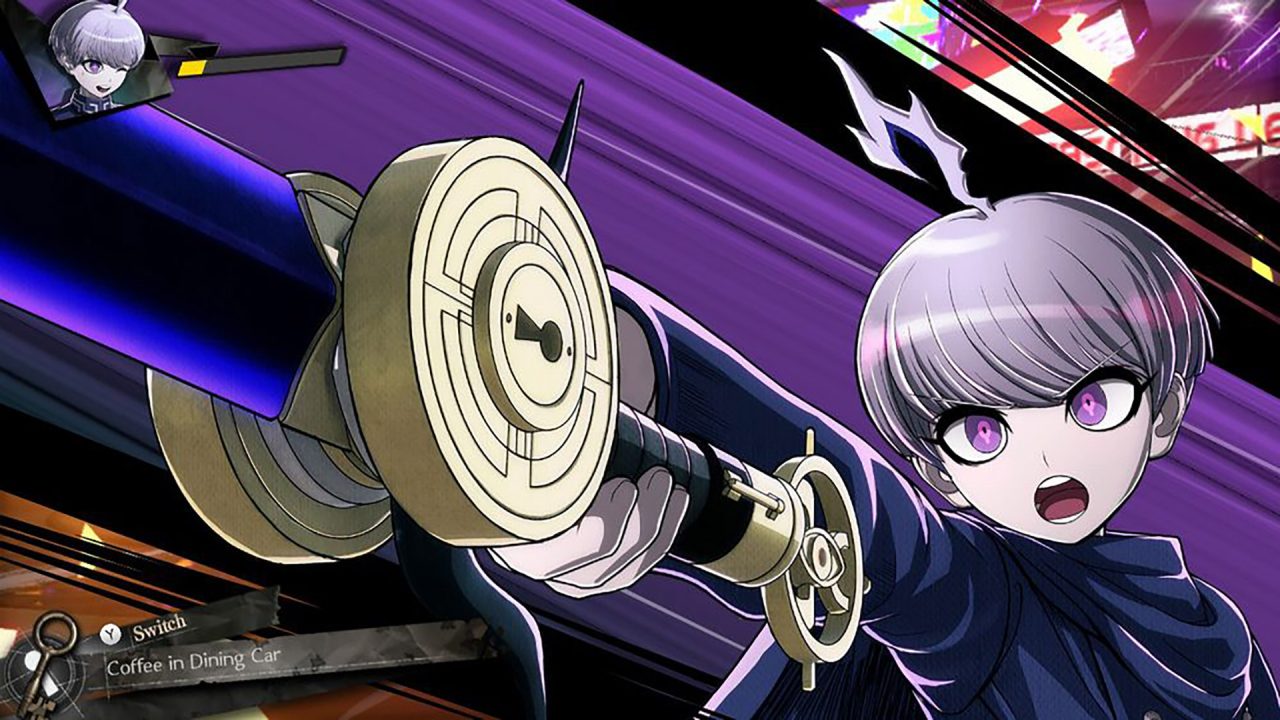I miss the PlayStation Vita. Sony’s second attempt to create a competitor to Nintendo in the handheld sphere may not have seen the success it deserved, but it did serve as something of a haven for fans of mid-to-low-budget Japanese titles. Games like Danganronpa, Persona 4 Golden, and an expansive back catalog of PSP and PS1 titles were king, and it was here that I was introduced to the zany work of Kazutaka Kodaka. After departing from Spike Chunsoft and helping to form Too Kyo Games, Kodaka and many other Danganronpa veterans are back with Master Detective Archives: Rain Code, a new mystery adventure title releasing exclusively on the Nintendo Switch. In many respects, Rain Code feels like a lost Vita title, and fans of Kodaka’s work and adventure titles absolutely shouldn’t miss this one.
In the world of Rain Code, Master Detectives working for the World Detective Organization, or WDO, are dispatched worldwide to solve mysteries. These detectives complete their work using Forensic Fortes: special powers such as telekinesis that provide an advantage during their investigations. Amidst this backdrop, a number of the WDO’s finest are dispatched to Kanai Ward, a perpetually rain-swept city under the control of the shadowy Amaterasu Corporation, which has completely isolated Kanai Ward from the outside world.
When Yuma Kokohead, a trainee detective, awakens in a train station with no memory of his past, he finds in his pocket a summons from the WDO to join the Master Detectives at the Nocturnal Detective Agency in Kanai Ward. That’s not the only problem poor Yuma has to contend with, however, as he has also seemingly made a pact with a capricious spirit named Shinigami, who is the source of his memory loss. Shinigami pledges to use her unique ability to manifest mysteries into physical, explorable labyrinths to assist Yuma on the path to becoming a great detective, and together, the duo will eventually be responsible for uncovering “Kanai Ward’s Ultimate Secret.”

Rain Code gets off to a slow start: the game spins its wheels for a while setting up the core cast of characters, explaining Shinigami’s unique abilities, and establishing the setting of Kanai Ward. However, once things pick up, it becomes an incredibly compelling tale, full of the kind of twisted scenarios and oddly endearing characters recognizable to anyone familiar with Danganronpa. I would, however, caution those who don’t have a strong stomach for anime antics and fanservice.
Shinigami, who spends most of the game as a cute and marketable cartoon ghost, goes through a magical girl transformation whenever Yuma enters the Mystery Labyrinth, becoming a well-endowed gothic lolita who, among other things, vomits up the clues you need to progress in the Labyrinth, transforms into a giant in order to break through obstacles, and has Yuma wield a sword that he pulls out of her mouth. I consider myself fairly unphased by anime nonsense, but there were definitely a few moments in Rain Code where I was glad that my roommate is an even bigger weeb than I am. Still, if you can get past that, there is a compelling story to be found here, and I was on the edge of my seat during the game’s final hours. There are also some delightful references to other game series that I appreciated.
Whenever Yuma isn’t investigating a case, the player will be able to guide him through Kanai Ward’s rain-slick streets, interacting with NPCs and objects in the environment to earn Detective Points, which can later buy skills that help Yuma out in the Mystery Labyrinth. The dystopian city of Kanai Ward is your oyster. There are even side quests the player can undertake, which reward a boatload of DP. While none of these side quests felt particularly engaging when compared to the main story, I appreciate their inclusion as an opportunity to flesh out the setting more. I’m honestly very impressed with Kanai Ward as a game environment: it feels much more lively and full of character than the empty halls of, say, Danganronpa’s Hope’s Peak Academy. The city is full of character, and I became attached to its little hideaways and back alleys as I neared the end of my adventure.

Investigations in Rain Code are a key gameplay component, and the process should feel very similar to Danganronpa. Whenever Yuma encounters a crime scene, the game will shift into Investigation mode, where you must interact with objects found at the scene to manifest the necessary Solution Keys (clues) to progress in the case. Once you scrutinize every notable object at the scene, you can end the investigation with the press of a button and move on with the story. The game occasionally spices things up with little cinematic sequences where Yuma will have to run away from the Peacekeepers, Amaterasu Corporation’s corrupt police force, and these are punctuated by quicktime events. These kinds of timed button presses rightfully catch a lot of flak from players, but they’re mostly harmless here. Failing one simply resets the scene and lets the player try again, so there’s minimal punishment for messing up.
Once in the Mystery Labyrinth, things get really interesting. Like in Danganronpa, players will have to contend with contradictory statements and attempt to refute them using the evidence they’ve gathered. This time, instead of a Class Trial, Yuma will engage in a “Reasoning Deathmatch” with a Mystery Phantom, a physical manifestation of those trying to cover up the truth. Also, instead of using truth bullets, players will wield Yuma’s “solution blade” in order to slash through the correct statement and uncover the truth behind each case.
Yuma has a health pool that diminishes if he takes damage during these sequences, but honestly, I never felt in danger of running out of health. It’s fairly easy to trial-and-error your way through the Mystery Labyrinths if you’re feeling stuck, although I relished finding the correct piece of evidence based on my own understanding of the case. Once everything has fallen into place, players put their answers into a chronological timeline of what happened with the case, called a “Deduction Denouement.”

Rui Komatsuzaki and Shimadoriru return as character designers for Rain Code, and their work is immediately recognizable. While Rain Code may not be a technical masterpiece (as seems to always be the case: the Switch really struggles to render larger/denser environments, and this game is no exception with its consistently sub-30 framerate), its striking, Tim Burton-inspired art direction more than makes up for it, with the various Mystery Labyrinths as a particular highlight. I’m also a big fan of Masafumi Takada and Jun Fukuda’s music. While some of it is a little repetitive, it’s always very catchy, and the game’s main theme is a total earworm. The voice acting is also excellent across the board, with a who’s who of contemporary anime voice actors lending their talents to the game’s expansive cast.
While I encountered few serious technical problems during my playthrough, I did have one instance where I loaded into a cutscene before I was supposed to with Yuma sitting suspended in a void until the game caught up to me. This didn’t impact my experience but seems worth mentioning. After a pre-launch update, I also noticed a few lines of dialogue seemed to be missing audio, although it was a sporadic occurrence. All in all, I greatly enjoyed my time with Master Detective Archives: Rain Code. As mentioned earlier, it feels like a lost relic of the PlayStation Vita in the best possible way. While the egregious fanservice may be a turn-off to some, for Danganronpa veterans and fans of other narrative adventure titles like the Zero Escape series, I highly recommend taking a trip to Kanai Ward. Just be sure to pack a raincoat.


